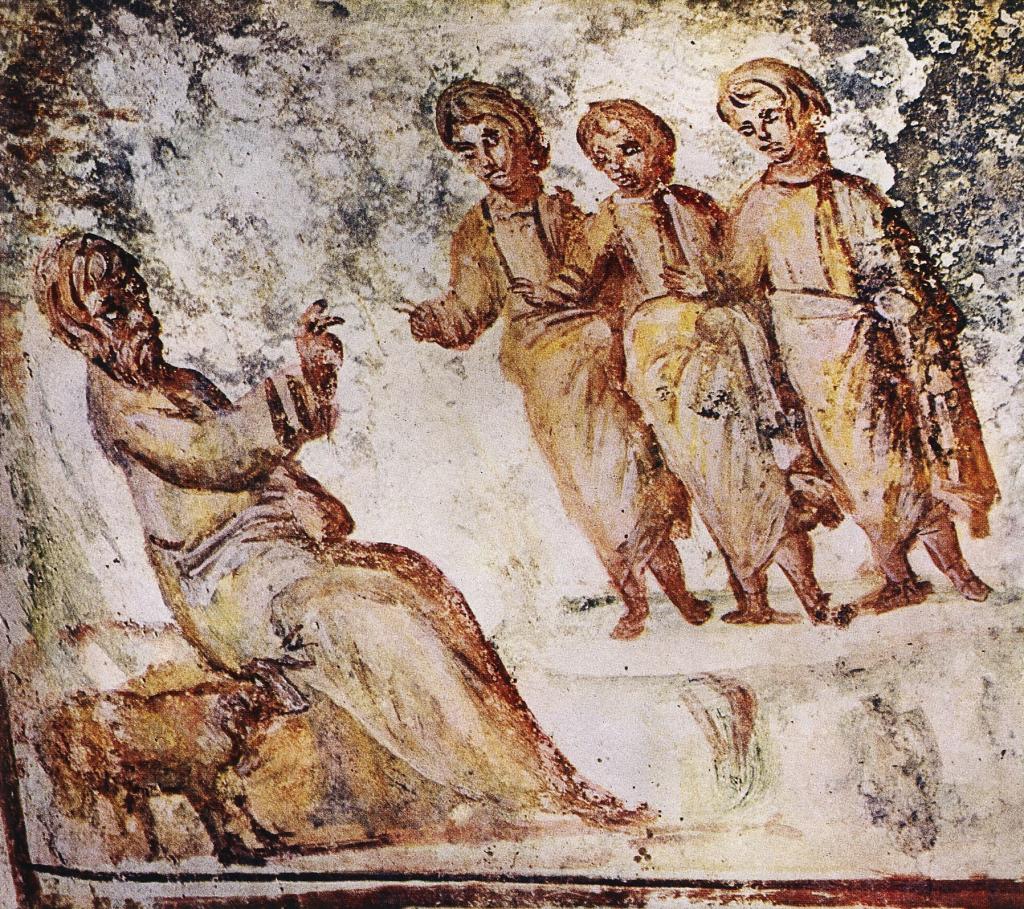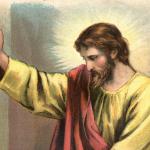
One of the things I really enjoyed about my time at Yale was the opportunity to read the non-canonical writings of the early Church; that is the works of the early Church fathers that didn’t make the cut for the New Testament.
It’s not like that opportunity is in any way exclusive to Yale. I just hadn’t had the chance to read many, if any, of the early Church fathers’ works or even really made much effort to to do so because in my particular evangelical context, if it wasn’t in the Bible, it really wasn’t worth reading. As I told myself back then, it must have been left out of the Bible for a reason, right? And obviously, the only reason it was left out was because it had to be part of Satan’s diabolical agenda to lead true believers astray like he does with those gnostic gospels I heard were full of nothing buy heresy (even though I never took the time to confirm those rumors for myself). So, in my naïveté, I ignored most of these writings because I assumed they were worthless material that would only distract me from the only truth worth knowing – biblical truth.
Boy, was I an idiot.
There is soooo much great stuff in the writings of the early Church that I was missing out on.
Sure, there is some dubious stuff out there too that definitely didn’t belong in the New Testament, but there is also a wealth of material full of truth and wisdom that very easily could have found its way into the Bible and become as beloved and quoted as the epistles we now know so well. There’s Clement and Irenaeus, Origen and Justin Martyr, the Shepherd of Hermas and Tertullian, and so many more.
One such reservoir of Christian wisdom I stumbled upon recently is the Epistle of Machetes to Diognetus.
Like many of the early Church’s writings (including some New Testament works), we don’t know who wrote it. Machetes is a generic name that simply means “a disciple.” And while Diognetus was a real person (one of Marcus Aurelius’ tutors), it’s highly doubtful this letter was actually written directly to him.
We also don’t know exactly when this epistle was written. Some scholars date it as early as 130 CE, while others argue for a late 2nd century date. Either way, it was written by a Christian disciple who bore witness to the birth of the Church and therefore had first-hand knowledge of how some of the earliest Christians lived and moved and had their being in the world.
There’s a lot worth reading in the Epistle to Diognetus, but what really stuck out to me was chapter 5, often titled “The Manners of the Christians.”
Given recent and fierce debates about what it means to be a Christian in our ever-changing and increasingly violent world, where being a Christian is too often defined by what we don’t do, who are enemies are, and how we cast our vote at the ballot box, the fifth chapter of Machetes’ epistles casts an interesting light on the life of the early Church and what defined their identity as Christians.
Here’s the chapter in full, emphasis mine.
For the Christians are distinguished from other men neither by country, nor language, nor the customs which they observe. For they neither inhabit cities of their own, nor employ a peculiar form of speech, nor lead a life which is marked out by any singularity. The course of conduct which they follow has not been devised by any speculation or deliberation of inquisitive men; nor do they, like some, proclaim themselves the advocates of any merely human doctrines. But, inhabiting Greek as well as barbarian cities, according as the lot of each of them has determined, and following the customs of the natives in respect to clothing, food, and the rest of their ordinary conduct, they display to us their wonderful and confessedly striking method of life. They dwell in their own countries, but simply as sojourners. As citizens, they share in all things with others, and yet endure all things as if foreigners. Every foreign land is to them as their native country, and every land of their birth as a land of strangers. They marry, as do all [others]; they beget children; but they do not destroy their offspring. They have a common table, but not a common bed. They are in the flesh, but they do not live after the flesh. They pass their days on earth, but they are citizens of heaven. They obey the prescribed laws, and at the same time surpass the laws by their lives. They love all men, and are persecuted by all. They are unknown and condemned; they are put to death, and restored to life. They are poor, yet make many rich; they are in lack of all things, and yet abound in all; they are dishonored, and yet in their very dishonor are glorified. They are evil spoken of, and yet are justified; they are reviled, and bless; they are insulted, and repay the insult with honor; they do good, yet are punished as evil-doers. When punished, they rejoice as if quickened into life; they are assailed by the Jews as foreigners, and are persecuted by the Greeks; yet those who hate them are unable to assign any reason for their hatred.
As I said, I know this isn’t canonical, but there’s a lot of truth in there that seems as if it could have been lifted directly from the pages of the New Testament.
Truth, that many of us need to hear today.
Sadly, those who hate us today too often have a laundry list of (very valid) reasons for their hatred. And I’m sure there were valid reasons some had for hating the early Christians too. (This epistle is after all, a work of apologetics.)
But imagine if we lived such lives as Christians, such authentically Christlike, self-sacrificing, and other-serving lives defined by such a radical incarnation of love for all that we didn’t given anyone anywhere any reason to hate us.
Imagine what the Church could accomplish.
Imagine how different the world might be.
Imagine what might happen if we finally started taking our call to live like Jesus seriously, instead of relegating our Christian identity to a list of ideas we intellectually agree to.
What a world that would be.












